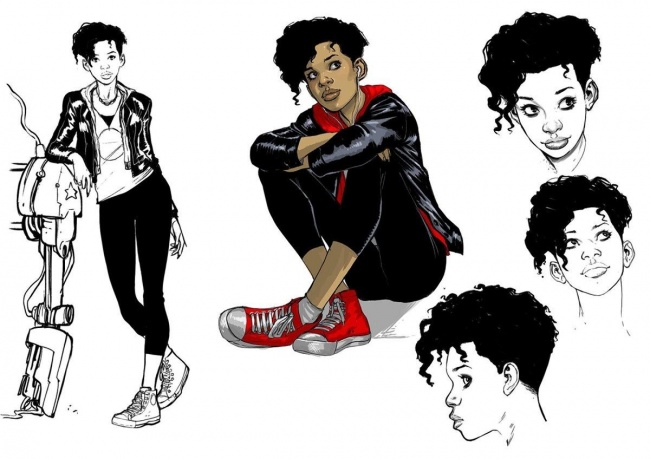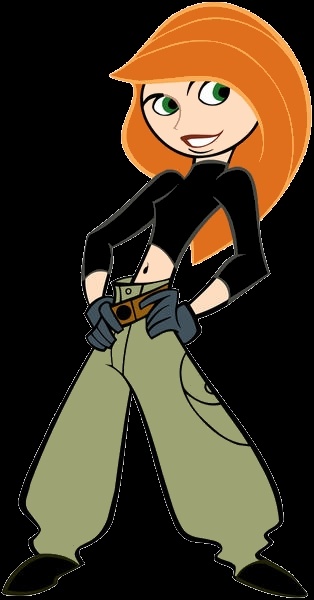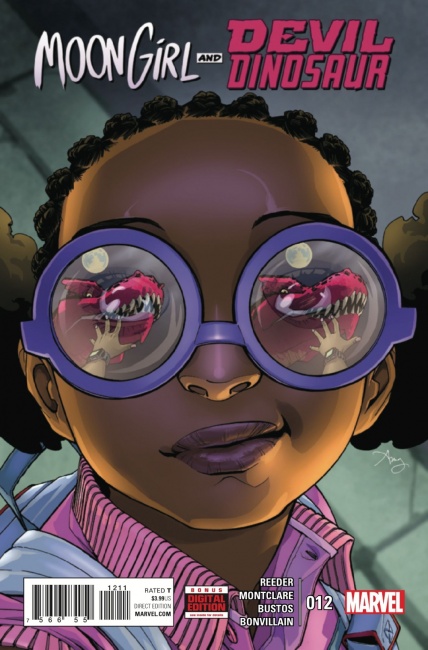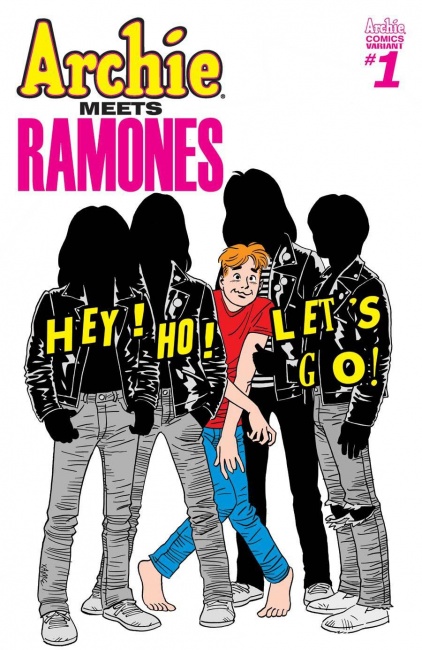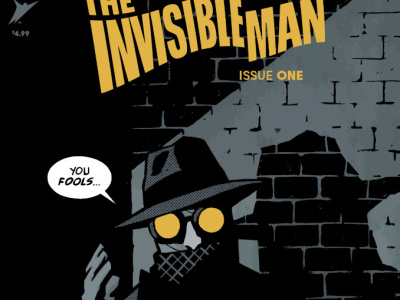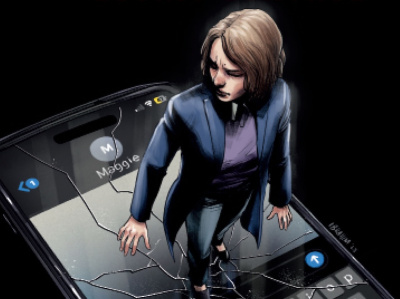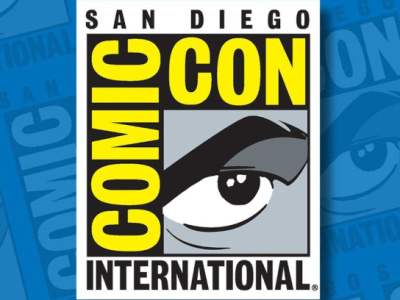Confessions of a Comic Book Guy is a weekly column by Steve Bennett of Super-Fly Comics and Games in Yellow Springs, Ohio. This week, Bennett talks about the cancelled Invincible Iron Man #1 variant, the changing demographics of comics readership, and Marvel titles with female protagonists he enjoys.
When Marvel announced that they were going to cancel Cover C of Invincible Iron Man #1, officially known as the Midtown Exclusive J. Scott Campbell Non-Armor Variant, the one featuring fifteen-year-old Riri Williams (see "Controversial 'Invincible Iron Man' #1 Variant Cancelled"), I was admittedly a bit surprised. My initial reaction was, wow, Marvel actually demonstrated... what’s the right word? Class? Sense? Taste? Oh, I know; decency. Which I know to some may seem like a bit of an overreaction. I mean, variants are exclusively intended for the hardcore fan and/or collector. Someone who doesn’t object to shelling out $15.00 for a new comic presumably should be able to cope with a cheesecake pinup cover.
Marvel stopped the cover from going out, demonstrating that they "get it," so what then, exactly, is my problem? It’s that a lot of people didn’t "get" it. Campbell clearly didn’t; he initially called the response an "SJW whine-fest" in a tweet. In a show of support artist Erik Larson tweeted, "So, apparently, body shaming is completely acceptable as long as the person being shamed is fit and attractive." On the HeatStreet website, in a piece titled "Marvel Cancels Ironheart Variant Cover After Complaints of Being Too 'Sexualized'," William Hicks remarked, "The ironic part about these new demands to crack down on sexualization is that they so closely align with puritanical rules on comic books enforced in the 1950’s."
A lot of people on social media certainly didn’t get it. I came across comments which ranged from "if an actual 15-year-old dressed that way nobody would care" to "I guess they should stop using female characters. It’s the only way to be safe" to "Champions of feminism are actually hindering it by creating an environment that censors sex." My favorite one though might be from the person who thought it was Riri’s wardrobe that people found so objectionable. They also pointed out Disney's Kim Possible was roughly the same age as Riri and nobody seemed to object that her signature look was also a midriff bearing crop top.
The cover was not withdrawn because it was too sexy, nothing and no one was "censored," and while Campbell took the whole thing very personally, I couldn’t find a lot of people who "blamed" him. In fact, the online consensus seemed to be that it was Marvel’s fault for hiring an artist best known for pretty girls in pinup poses in the first place. It certainly wasn’t Riri’s clothes. It really wasn’t the cover at all. It was Riri. Riri is 15 years old. You don’t hypersexualize 15-year-olds. You just don’t.
Last week (see "Confessions of a Comic Book Guy--Superhero Proliferation"), I wrote that before I react, let alone overreact to something like this, I ask myself the question "Who Does It Hurt?" This hurt women and young women and women of color and, I know it did because that's what it says in their online comments, blogs, and articles. You’re welcome to continue invalidating their objections by branding them "complainers" or slapping quotes around words like "sexualized" to try and devalue the concept. Label them "Social Justice Warriors" because of their legitimate concerns about inclusion and representation. But I wouldn’t advise it.
The status quo these people grew up immersed in, one where comic books were made and marketed to a presumptively white, male and Christian audience, is no longer in service. For those who’ve forgotten back when comic books sales were in a death spiral. Now over 40% of comic book readers are women and increasing numbers are people of color. Kids and tweens read comics, and year after year sales of comic books go up. That can’t be a coincidence.
There are quite a few current Marvel titles featuring female protagonists and I’m enjoying most of them, not because, as a good SJW, I’m compelled to support our sinister diversity agenda, but because they’re good comics. Just as importantly, because more often than not, they’re substantially different from traditional superhero comics while still delivering all of the soap opera and action the genre demands. Ms. Marvel, Squirrel Girl, Spider-Woman, A-Force (sadly the final issue, for now, shipped last week) and especially Moon Girl and Devil Dinosaur.
What makes Moon Girl and Devil Dinosaur so special is Moon Girl is kind of a jerk. But then she is a child and she acts like an actual child, and being kind of a jerk goes with the territory. She’s not written stupid (smart is, in fact, her main superpower), but like any child, she tends to make really poor choices and tends to act out when frustrated. In short, she’s not a "Mary Sue" type character but rather an actual character, and an interesting one.
Finally, I’ve been waiting decades for Jamie Hernandez to do something for Archie Comics, the publisher, and while I still want him to write and draw an entire issue of Archie, the comic book, I’m cool with this variant cover he did for Archie Meets The Ramones. At least for now, anyway.
The opinions expressed in this column are solely those of the writer, and do not necessarily reflect the views of the editorial staff of ICv2.com.
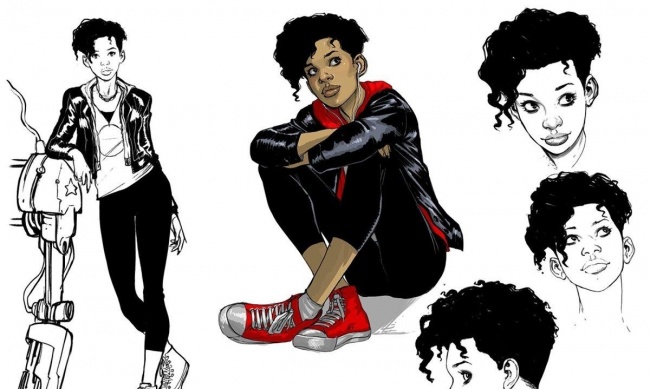
Column by Steve Bennett
Posted by Steve Bennett on October 26, 2016 @ 1:46 pm CT
MORE COMICS
From Image Comics
August 1, 2025
Check out David Aja's "Pulp" variant covers for Universal Monsters: The Invisible Man miniseries.
Coming from Dark Horse in November
July 31, 2025
Dark Horse Comics will launch the series in November.
MORE COLUMNS
Column by Scott Thorne
July 28, 2025
This week, columnist Scott Thorne comments on the Edge of Eternities prerelease and on Magic: The Gathering news from the Hasbro earnings report.
Column by Rob Salkowitz
July 21, 2025
Columnist Rob Salkowitz lays out the Comic-Con panels of interest to industry professionals, current and aspiring creatives, educators, librarians and retailers.



